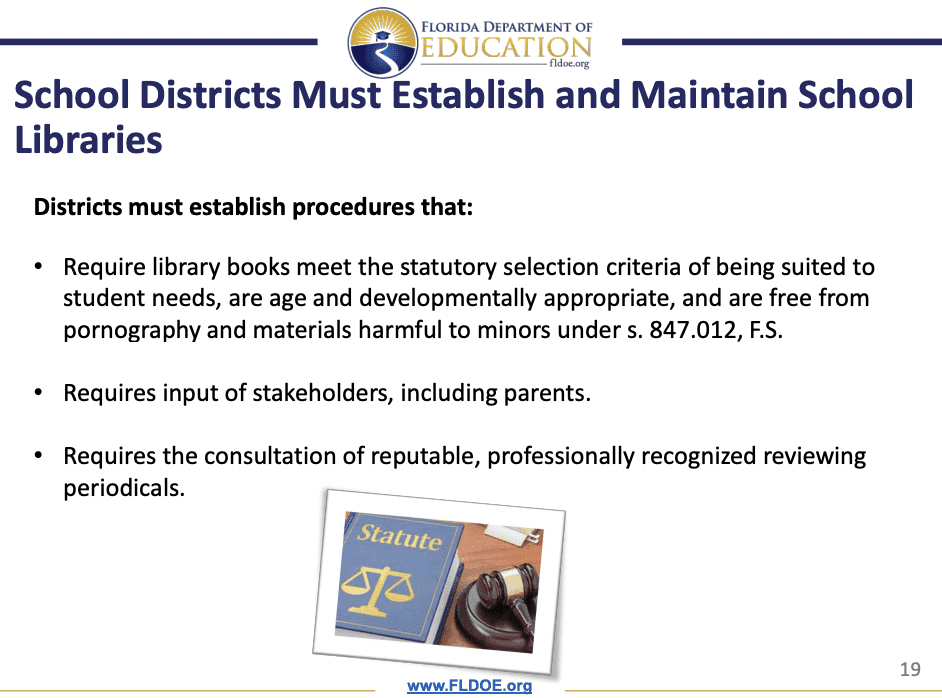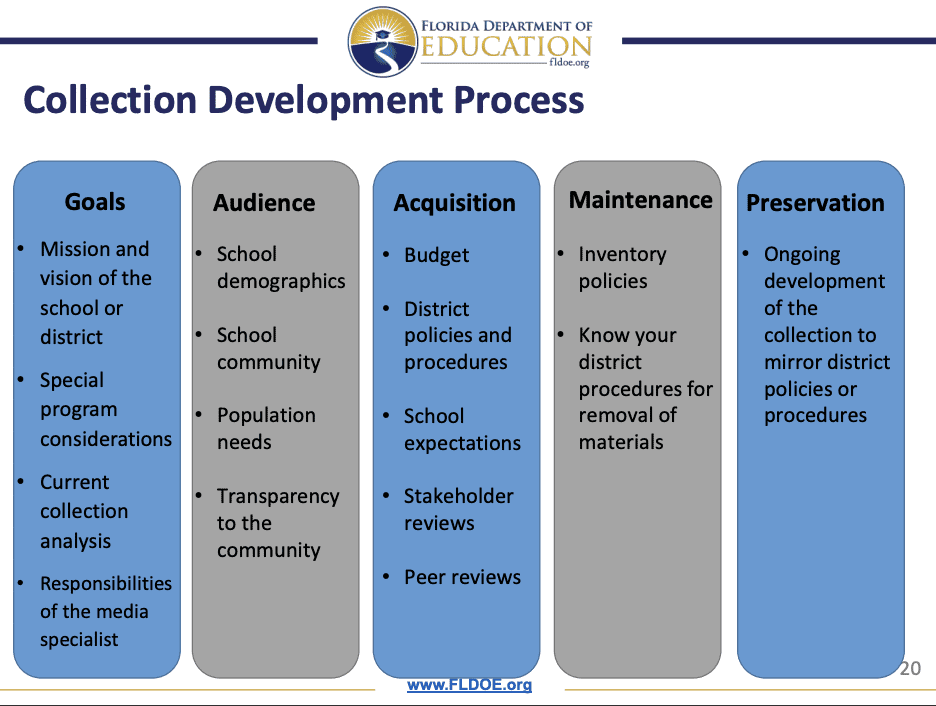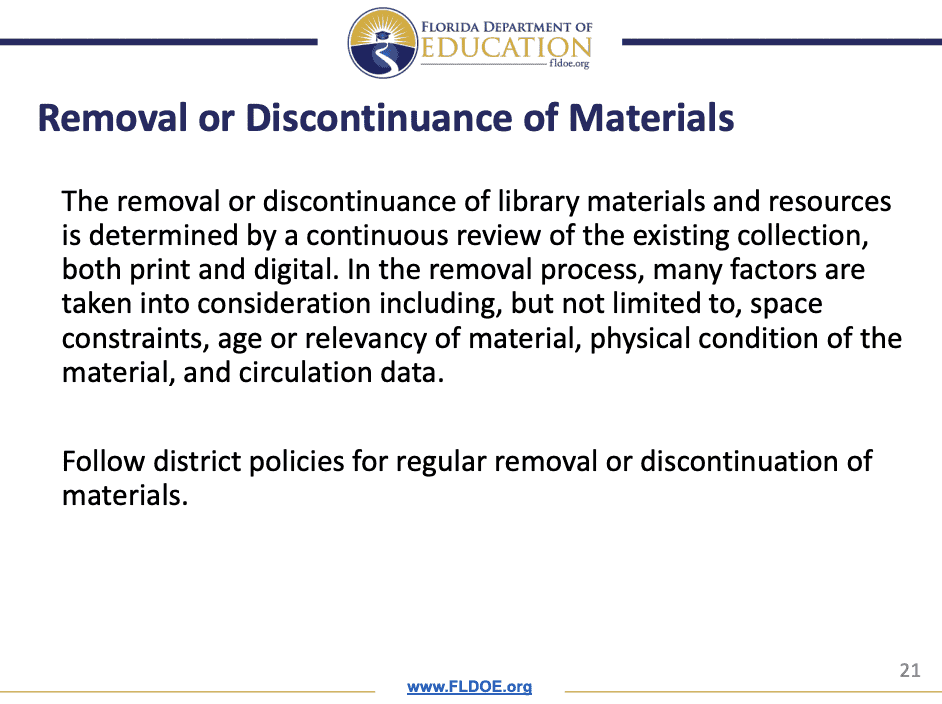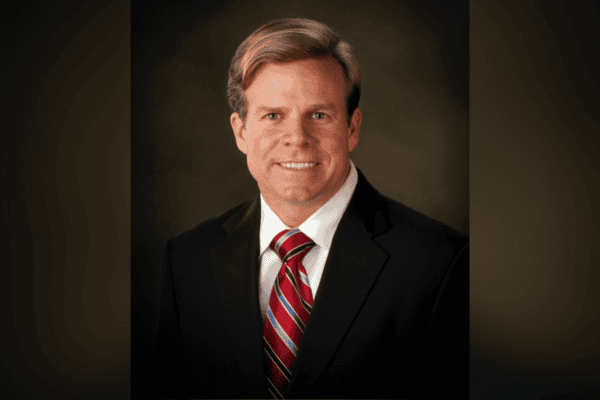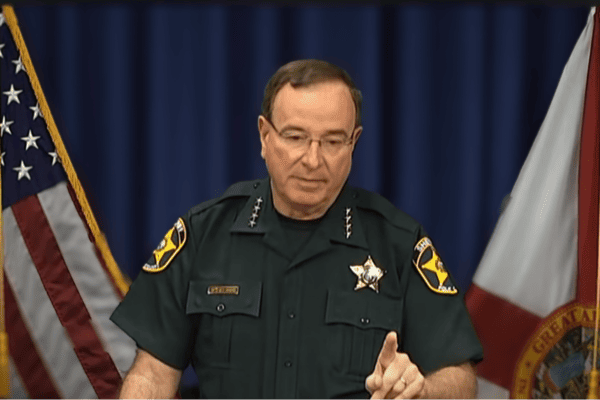State Board of Education approves training material for media specialists selecting school books

Amber Jo Cooper contributed to this report.
TALLAHASSEE (FLV) – The Florida State Board of Education approved new training materials for school media specialists who decide which books belong in classrooms and libraries.
A 2022 Florida law requires school librarians and media specialists complete an online training program before selecting books and media for schools. The Florida Department of Education had the training materials developed and approved the materials Wednesday.
All school librarians must be certified and complete the online training prior to picking out books. The training materials highlight and clarify Florida laws related to educational materials in schools.
For example, the training defines pornography as “the depiction of erotic behavior (as in pictures or writing) intended to cause sexual excitement.” It also explains what material adults are not allowed to distribute to minors on school property.
• Any picture…or visual representation of a person or a
Materials Prohibited by Section 847.012, F.S.
portion of a human body which depicts nudity or sexual
conduct, sexual excitement, sexual battery, bestiality, or
sadomasochistic abuse and which is harmful to minors.
• Any book, pamphlet, magazine [or] printed matter…that
contains…explicit and detailed verbal descriptions or
narrative accounts of sexual excitement, or sexual
conduct and that is harmful to minors.
At the meeting Wednesday, many speakers shared concerns regarding Slide 10 that discusses the penalties, specifically section (C).
Section (C) states, “Taken as a whole, is without serious literary, artistic, political, or scientific value for minors.” Critics said the language should be strengthened so it cannot be manipulated to exploit any loopholes.
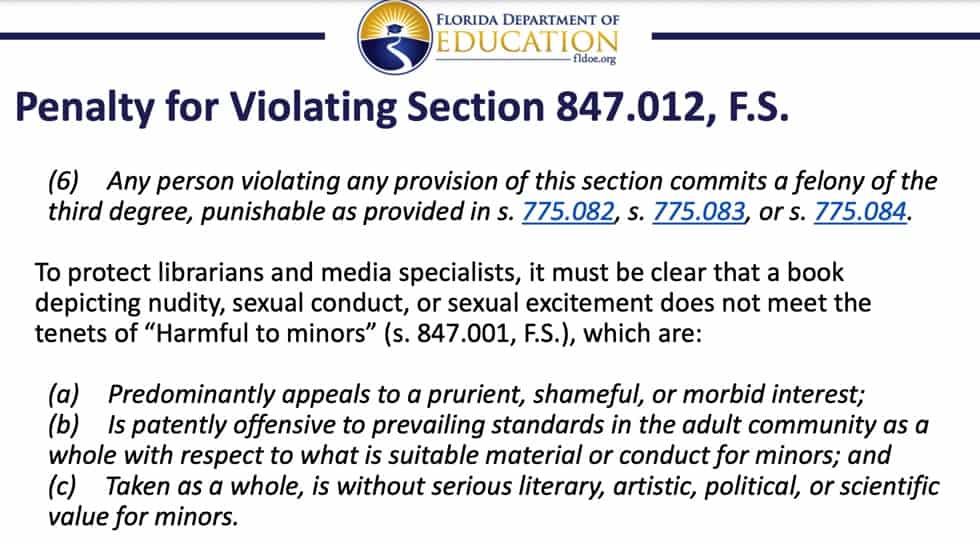
“The language in section C has been used as a loophole not just here in Florida but across the United States as a way to give permission for the harmful content to be in – thats basically the Miller clause from a California case that is totally not relevant,” said Robert Goodman, Executive Director of County Citizens Defending Freedom.
Dr. Burns, Deputy Chancellor for Educator Quality said the slide comes directly from the law and changing those words would change what the law actually says.
“A lot of the comments for slide 10, like Dr. Burns said, we’re just quoting the statue here saying ‘you could be criminally punished if you provide these type of materials to minors,’ but if you go to slide seven and slide six, it says there are materials over and above what the statute prohibits, that are also prohibited in libraries. So the definition for pornography, in slide seven, doesn’t have the ‘loophole,’ as some commenters were calling it, for serious literary value,” General Counsel Andrew King said.
The educational material also list out the three requirements for representation of nudity, sexual conduct or sexual excitement to be considered “harmful to minors” including:
- Predominantly appeal to a prurient, shameful, or morbid interest;
- Be patently offensive to prevailing standards in the adult community as a whole with respect to what is suitable material for minors; and
- Taken as a whole the material is without serious literary, artistic, political, or scientific value for minors.
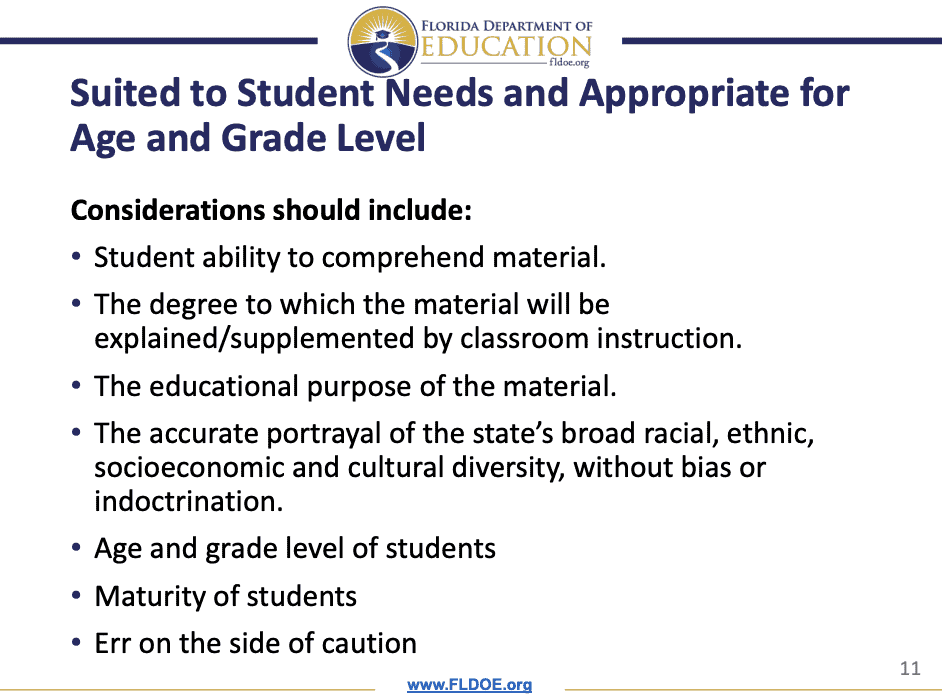
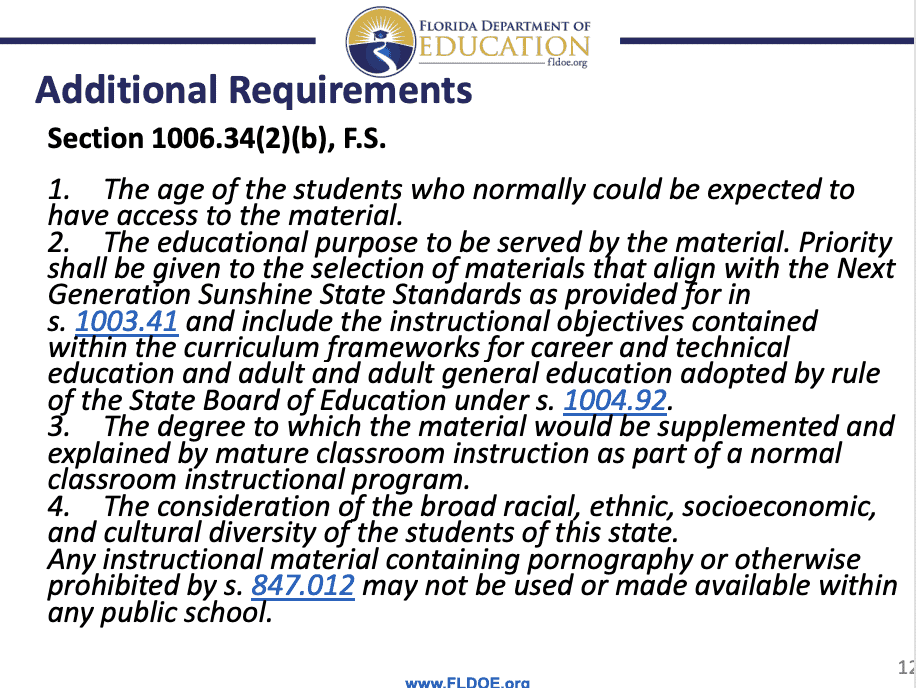
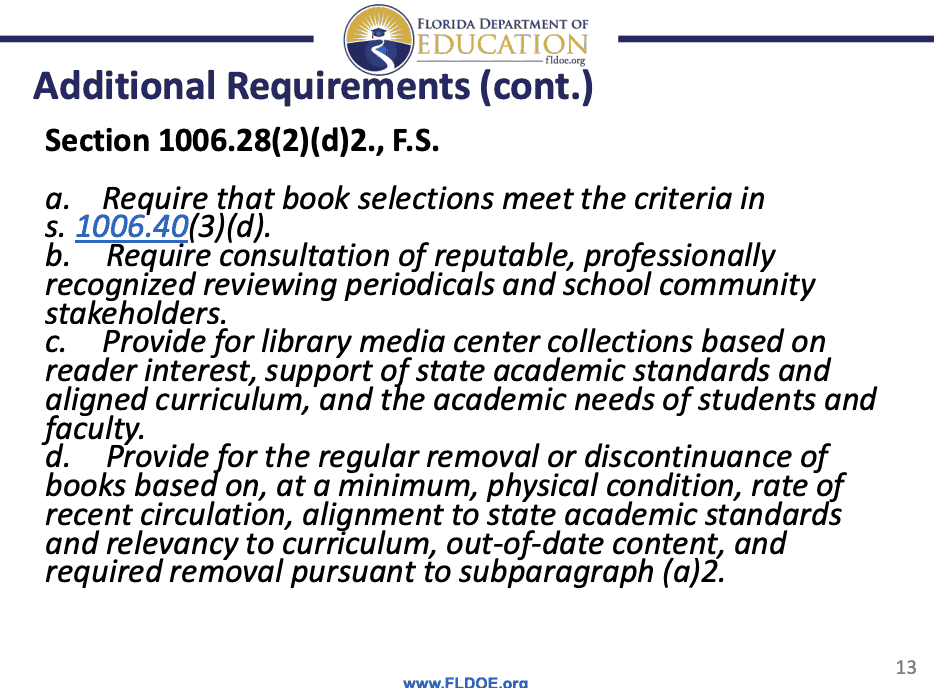
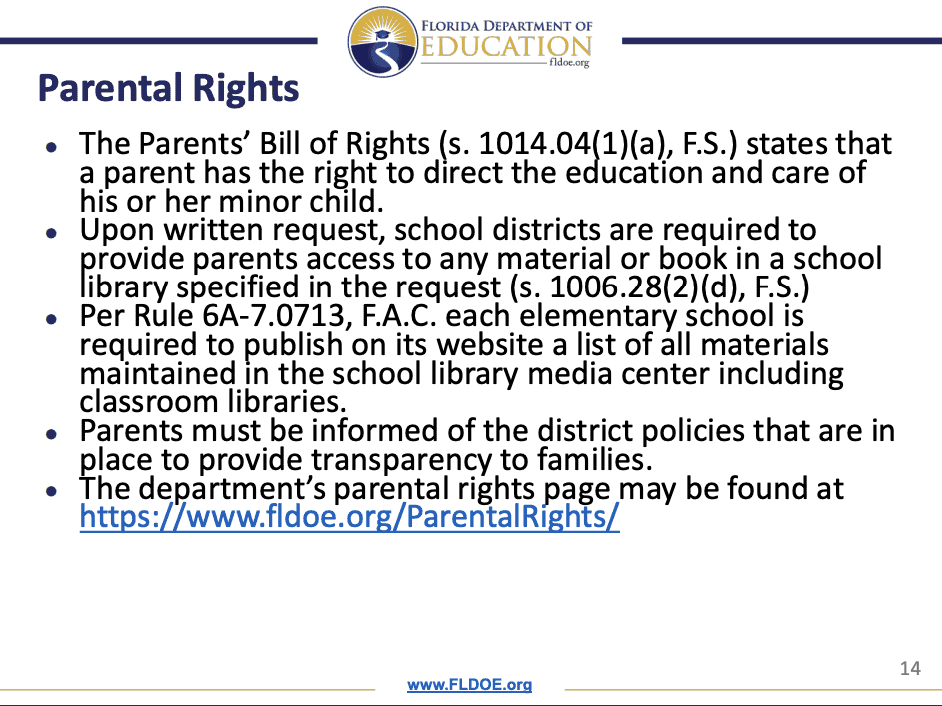
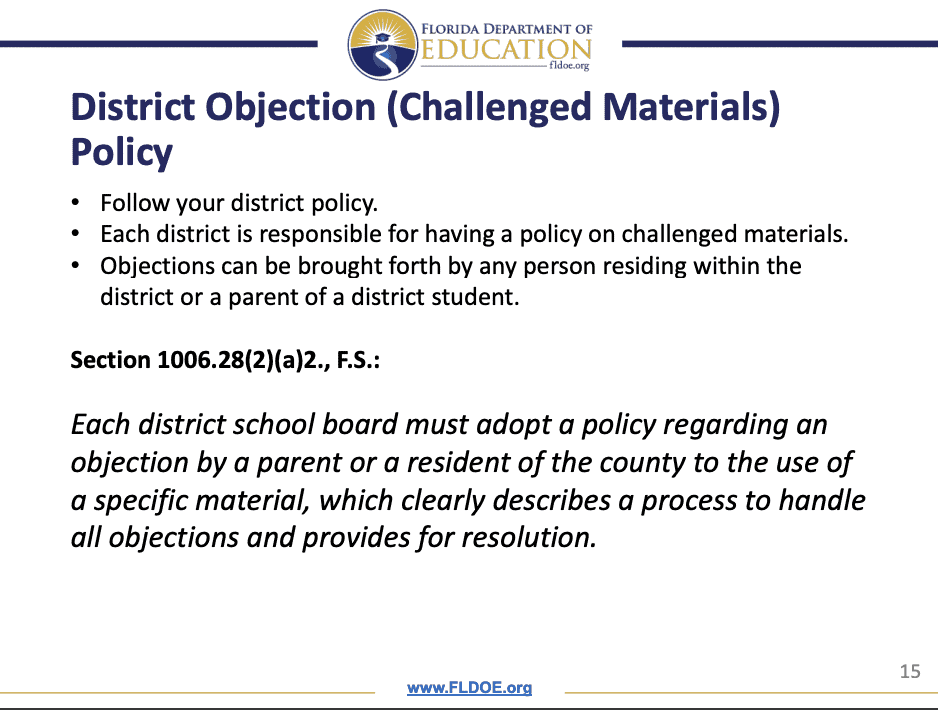
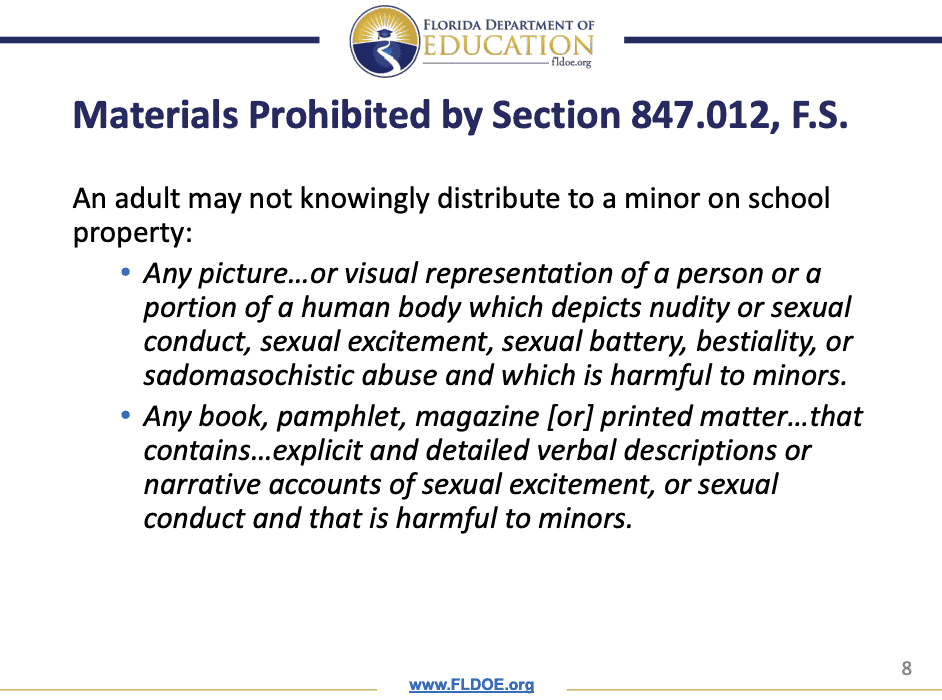
The guidelines also outline how to select material for the collection that are balanced, describes the process for removal of inappropriate materials, and determines the retention and archiving of materials.
